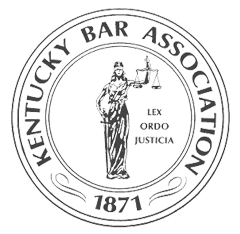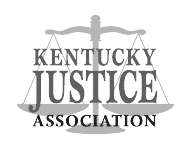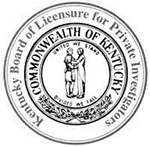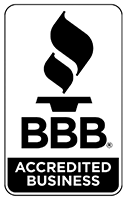Lexington Slip and Fall Accidents Lawyers
Falls are a major source of injury in Kentucky, and not just among the elderly. According to statistics compiled by the State of Kentucky, falls are the leading cause of hospitalization among children ages 14 and younger as well as adults 45 and older. Each year, there are an average of over 10,000 unintentional falls, many of these are due to dangerous conditions on the property where the fall occurred. Those injured in a slip and fall accident may be able to recover for their injuries through a Kentucky premises liability claim.
Kentucky Premises Liability Law
Kentucky landowners owe a duty to those whom they invite onto their property. The extent of the duty a landowner owes to a guest depends on a variety of factors, primarily the relationship between the parties and the reason for the guest’s visit. Unlike many other states that have abandoned the traditional classifications of trespasser, licensee and invitee, Kentucky law still recognizes these distinctions. Thus, it is important for those who have been injured in a Lexington slip and fall accident to understand the differences between these terms, and how they can affect a personal injury claim.
Trespasser – Under Kentucky personal injury law a trespasser is someone who is on another’s property with no legal right to be there. Generally, a landowner does not owe a trespasser a duty of care. However, there are two situations in which a landowner can be held liable for a trespasser’s injuries. First, recovery may be possible if the trespasser’s injuries are the result of the landowner’s intentional, willful, wanton or reckless conduct. Second, a landowner may be liable for injuries caused by an “attractive nuisance” on their property. An attractive nuisance is a dangerous feature of the property that the landowner should know is likely to entice children to enter the property without permission. Classic examples of attractive nuisances include an unfenced swimming pool, a roof that is low enough for children to climb onto, heavy machinery and parked vehicles.
Licensee – A licensee is someone who enters another’s property for their own purposes, without any benefit to the landowner. Typically, someone is a licensee if they are on another’s property as a result of express consent or local custom. For example, a landowner who allows a neighbor to cross through their backyard to more easily access a trailhead may have created a licensee relationship with the neighbor. Landowners who are aware of dangerous conditions on their property that may not be easily spotted by the licensee must warn licensees of these hazards.
Invitees – An invitee is a guest who is invited onto a property for the mutual benefit of the guest and the landowner. The classic example of an invitee is a customer; however, social guests can also be invitees in some circumstances. Landowners owe invitees a duty to maintain their property in a safe condition. This requires a property owner to keep an eye out for unreasonably dangerous conditions and to either fix the hazard or warn the invitee of the condition.
Comparative Negligence in Fayette County Premises Liability Cases
Frequently, defendants in Lexington premises liability cases will raise the issue of the plaintiff’s own role in bringing about their injuries. If a landowner is able to prove that the person who fell on their property was partially at fault, the accident victim’s total award amount may be reduced. Under the comparative negligence doctrine, a court will reduce an accident victim’s recovery amount by the percentage they were found to be at fault. For example, assume a man trips down a set of unlit stairs and sustains $200,000 in damages. The jury determines that the property’s owner was 80 percent at fault and the man was 20 percent at fault because he rushed down the stairs and did not take his time, knowing that the stairs were unlit. In this situation, the man would be entitled to recover $160,000, which is 20 percent less than the total $200,000 in damages he sustained. Given this reality, it is crucial that Kentucky slip and fall plaintiffs discuss their case with a knowledgeable personal injury lawyer prior to filing their case.
Thankfully, Kentucky uses the doctrine of pure comparative negligence when it comes to apportioning liability. This means that, regardless of a plaintiff’s percentage of fault, they can still pursue a claim against any other party who is also to blame. Some jurisdictions use a modified form of the comparative fault doctrine, allowing only those victims who were less than 50 or 51 percent at fault to recover for their injuries. And very few jurisdictions use a contributory negligence model, which precludes an accident victim from pursuing recovery if they are even the slightest bit responsible for their injuries.
Consult with a Dedicated Lexington Slip and Fall Accident Law Firm
If you or a loved one has been involved in a Lexington slip and fall accident, you deserve an experienced personal injury law firm that will stand with you the whole way. At Hessig & Pohl, we are ready to help you pursue a claim for compensation against the parties responsible for your injuries. Our experienced Kentucky slip and fall liability attorneys are well-versed in all aspects of premises liability law, and know what it takes to succeed on our clients’ behalf. One of the reasons Hessig & Pohl is a popular choice among Kentucky car accident victims is that our representation does not cost you anything out-of-pocket. We work on a contingency basis and cover all litigation costs. We will not collect a fee unless we are able to help you recover compensation for your injuries. Contact us through a contact form, or call our office at (502) 777-1111. The initial consultation is always free.
Marty fought for me when the insurance company denied my claim. We sued and got the insurance limits.






